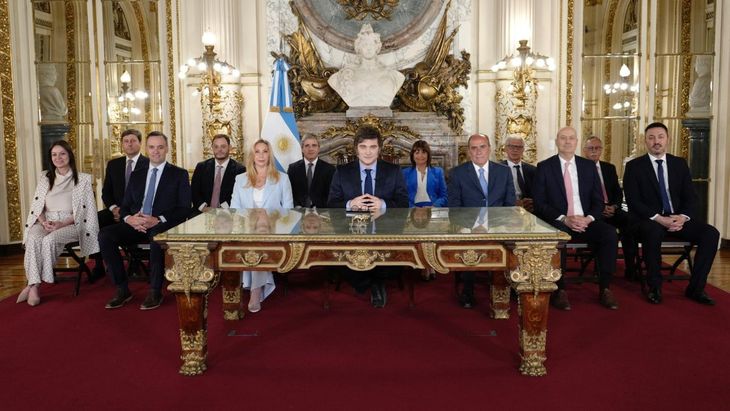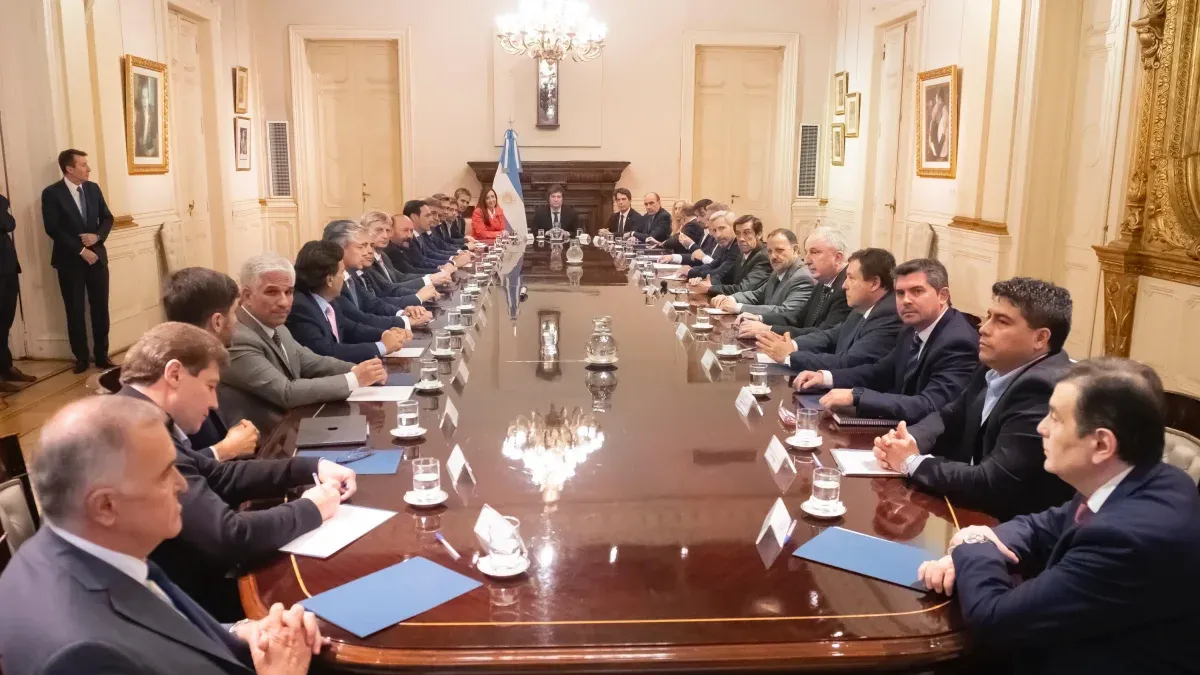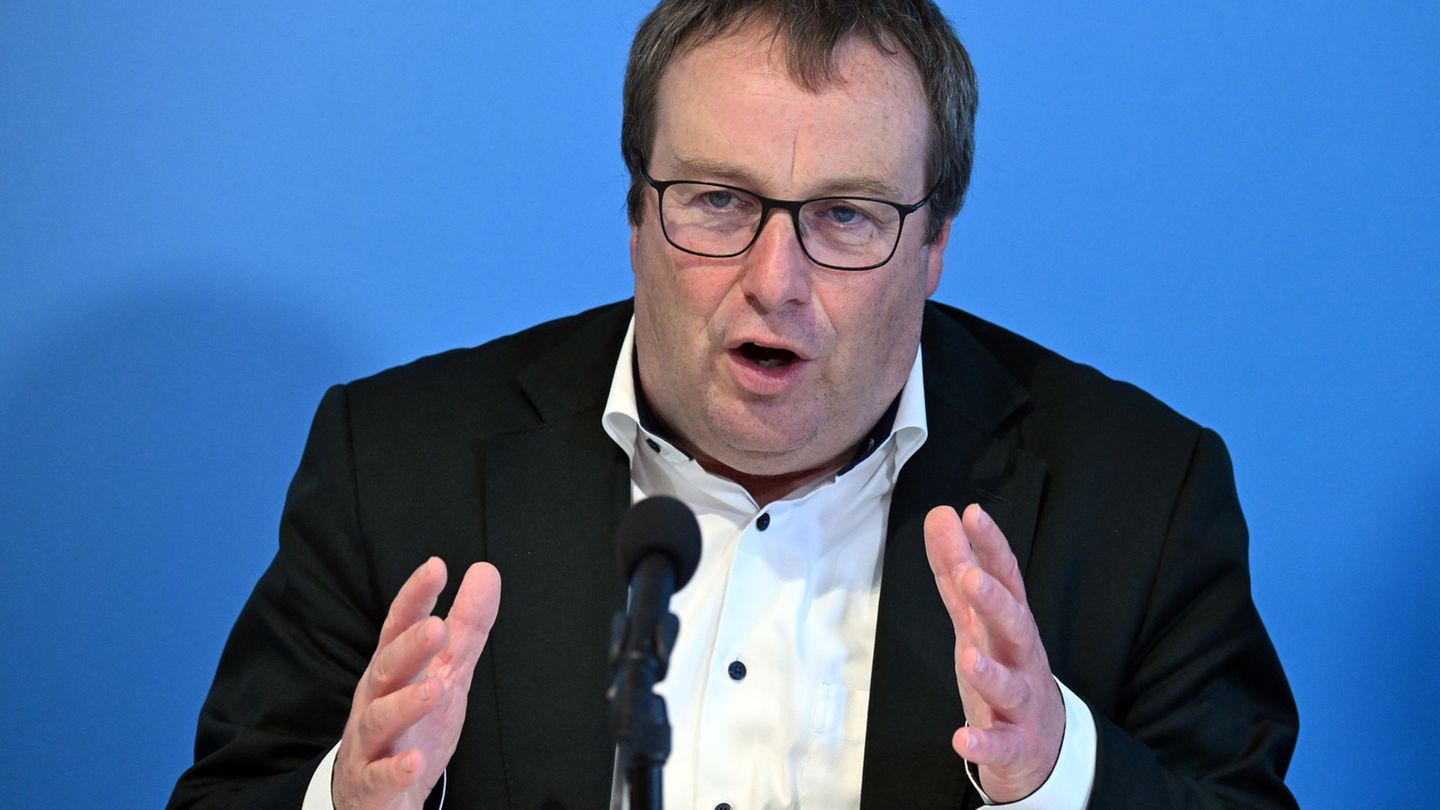“My team is currently finishing a structural tax reform that will reduce the amount of national taxes by 90% and It will return to the provinces the tax autonomy that they should never have lost. Thus, next year we will see a true fiscal competition between the Argentine provinces, to see who attracts the most investments,” said the President on national television.
Reaction of governors after Javier Milei’s announcement
Just one day later and with Milei’s words still fresh, chiefs from all over the country were trying to decode the message. In response to the query of Scopefrom the jurisdictions they drew some common lines. Firstly, they emphasized the need to receive resources.
“We believe in that, with the corresponding financing. Now they are offloading all responsibilities to the provinces and taking resources from us instead of giving them to us,” They protested from a governorate allied to the Casa Rosada. “Speech is free, but facts are sacred,” added up in a northern district, paraphrasing the late Supreme Court justice Carlos Fayt.
From the yellow ranks they were also cautious. “If this greater autonomy comes with the corresponding resources, avanti,” commented in a PRO jurisdiction. A Minister of Economy consulted by this means considered that, for provinces that collect more than they receive, It will be good, although he conditioned it on knowing the bases of the tax reform. “Pure show. If they wanted more autonomy for the provinces, they would have discussed the Budget,” They gave a laconic sentence from a federal bench.
One of the first leaders to speak officially was the wayward Peronist Osvaldo Jaldo (Tucumán). “The Nation collects its own taxes, such as withholdings, on fuel and exports, which are not shareable, but the VAT is co-participable and we do not know what the Nation will do with the VAT. Almost half is for the Nation and the other half is for the provinces. So it seems to us that the President spoke in a global way,” evaluated.
jaldo1.jpeg
The governor of Tucumán, Osvaldo Jaldo.
In that sense, he maintained that “from saying to fact, there is a distance, because you have to see the instrumentation and which sectors the process will impact and how these transformations will operate,” while stating that “there is a country that is changing and that will continue to deepen the changes.” “Argentina does not want to go back. He broke the rearview mirror. He doesn’t want to look back. We have to know how to read what is happening in the country. That is what I did from the first day of Government, what was done is important, but not enough,” he concluded.
For his part, the Minister of Government of Corrientes, Carlos Vignoloanticipated that “a tax reduction is interesting” “as long as it does not affect the provinces.” In dialogue with radio Sudamericana, The official evaluated that the expectation of the provinces is to “wait to know the impact of the elimination of 90 percent of taxes”, focused on “the importance of the issue of autonomy of the provinces.”
“We find it interesting, but as long as it does not have an impact on the provinces, as happened this year,” commented the minister who responds to Gustavo Valdes.
Doubts and criticisms
At the same time, a deputy from an important province commented to this medium: “It is not very clear what they want to do. Are they going to lower national taxes, VAT, Profits, etc.? Are they going to continue collecting them? They were not very precise. I understand that there are a lot of taxes that may be levied so that each province can decide whether to recompose it elsewhere. What is shared is VAT and Profits, there is not much to touch on. “It’s kind of ambiguous.”
Regarding this aspect, the source pointed out that the Government seeks to go to a “model like the North American one, with the provincial tax.” “The issue is that when they make an announcement of 90 less taxes, they actually speak nominally, not in percentages. I don’t think they remove the VAT. They talk about tax competition; in the US, the tax competition is the VAT. You pay a tax which on one side is 8%, on another 6%, on another 9%. Taxes on productive issues, etc., are already in the provinces. Gross income is already in the provinces and the provinces. provinces have incentive policies,” he concluded.
Meanwhile, the governor Sergio Ziliotto (La Pampa) referred in harsh terms to the President’s statements. “What Milei announced yesterday was more adjustment, almost a guillotine,” said the president. “For there to be development we have to see how it is distributed because there are sectors that continue to go down and today when we talk about public finances there is a great plateau, especially due to the drop in consumption,” the Peronist leader explained to Radio Noticias.
javier milei national chain.jpg

Javier Milei created a national network for the first year of his mandate.
Ziliotto also stated that currently “Milei has the sum of public power, because the tools were given to him by many governors and legislators; the public works agreements, for example, were not fulfilled.” Finally, he stated that “we cannot talk about a serious country that has not had a budget for two years” and recalled that the Nation removed from the provinces all those responsibilities such as health, food, work. “That is to say that everything that impacts the territory was withdrawn so it is not just involution but a consolidation of what happened,” he concluded.
As happened with the presentation of the Budget, when Milei demanded an adjustment of US$60 billion from the provinces, this Wednesday officials from his cabinet had to come out to put his statements into perspective. On this occasion, it was the Minister of Transformation and Deregulation of the State, Federico Sturzenegger, who put the cold shoulder.
“He is not talking about eliminating 90% quantitatively, but in terms of the number of instruments. To reduce the tax burden by 90% we would have to reduce spending by 90%.”he remarked.
Source: Ambito




